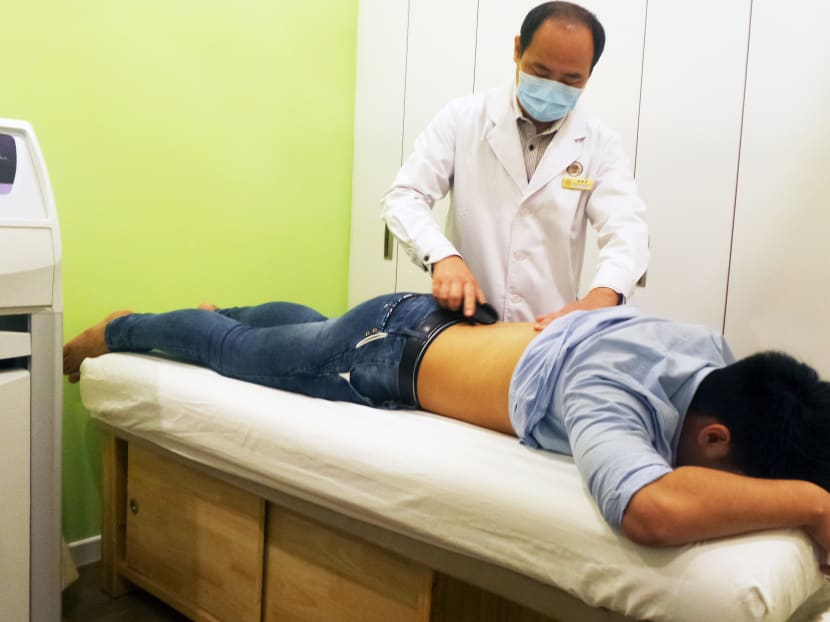TCM ‘can play greater role’ in preventing disease as population ages
Singapore — An ageing population and a higher prevalence of chronic diseases means that Traditional Chinese Medicine (TCM) has a potentially important role in disease prevention and management in Singapore, Health Minister Gan Kim Yong said yesterday.
Singapore — An ageing population and a higher prevalence of chronic diseases means that Traditional Chinese Medicine (TCM) has a potentially important role in disease prevention and management in Singapore, Health Minister Gan Kim Yong said yesterday.
But those in the industry also point to insufficient research funding and the need for more collaboration between western doctors and TCM physicians for a more integrated approach.
And more evidence-based science is needed to back up TCM’s efficacy, World Health Organisation Director-General Margaret Chan said in Singapore at the inaugural International Conference on the Modernisation of Traditional Chinese Medicine.
Criticism of TCM must be addressed before it can play a legitimate role in the healthcare system, she said, citing critics who say that few well-designed studies have demonstrated TCM’s efficacy over placebos.
“Some critics dismiss the entirety of this ancient art as nothing but pseudoscience or snake oil medicine. We need to find the evidence to prove it wrong, or to prove that traditional medicine is of great value,” she said.
Dr Chan saw a need to encourage governments to support TCM more.
Noting that Singapore and countries such as Japan and Taiwan provide research funding for TCM, she said: “It’s wonderful that the Singapore government has put in S$3 million to encourage research.
“But if you look at the amount of money put into Western medicine research ... I’d encourage both sides to work together.”
She was referring to the Health Ministry’s fund, started in 2014, to encourage collaborative clinical research in TCM. And those in the industry backed her views.
Academy of Chinese Medicine Singapore (ACMS) executive council member Hong Hai said: “We need more funding and a bigger population sample. The S$3 million is actually “peanuts”.
“In pharmaceutical research, one drug in (food and drug administration) can take S$500 million to S$1 billion. But we’re not trying to produce drugs; we’re just trying to do clinical trials to show that, well, there’s something there.” TCM physician Karen Wee added: “If TCM has an advantage in controlling or treating certain diseases, clinical trials can be held to see if using a mix of western medicine and TCM, or TCM alone, is more effective.”
She stressed that the research capabilities of doctors trained in western medicine can contribute to the partnership. Professor Hong added, however, that because many traditional remedies cannot be patented and sold as a brand, companies might lack the incentive to do trials.
At the conference, co-organised by ACMS and the Nanyang Technological University, Mr Gan described TCM as complementary to mainstream medicine.
For instance, acupuncture is now available at public hospitals for pain management and stroke rehabilitation — “an important step to a more holistic approach to patient care”.
Dr Chan also noted that patients are referred to go for traditional treatments like acupuncture by doctors trained in western medicine.
Then there is a need to formulate policies to drive TCM forward. Associate professor Joanne Yoong, director of the National University of Singapore’s Centre for Health Services and Policy Research, called for a more systemic, outcome-based framework beyond clinical research.
“We need a framework ... How is it paid for? How is safety assured? How is quality assured?” she said, adding that rising life expectancies and health expenditures make this task more urgent.
For now, there is some progress in research. According to the Ministry of Health, six projects have been awarded a grant under its fund so far, with four of them related to acupuncture treatment. One grant, worth more than S$650,000, will be used to test how effective TCM is on patients with irritable bowel syndrome. Dr Wang Yu Tien, from the Singapore General Hospital’s department of gastroenterology and hepatology, plans to recruit 106 patients.







